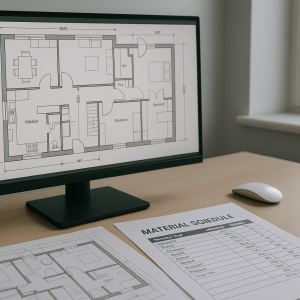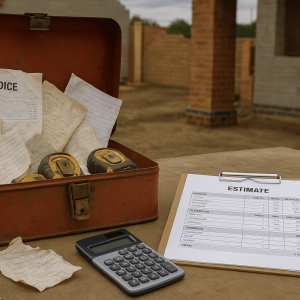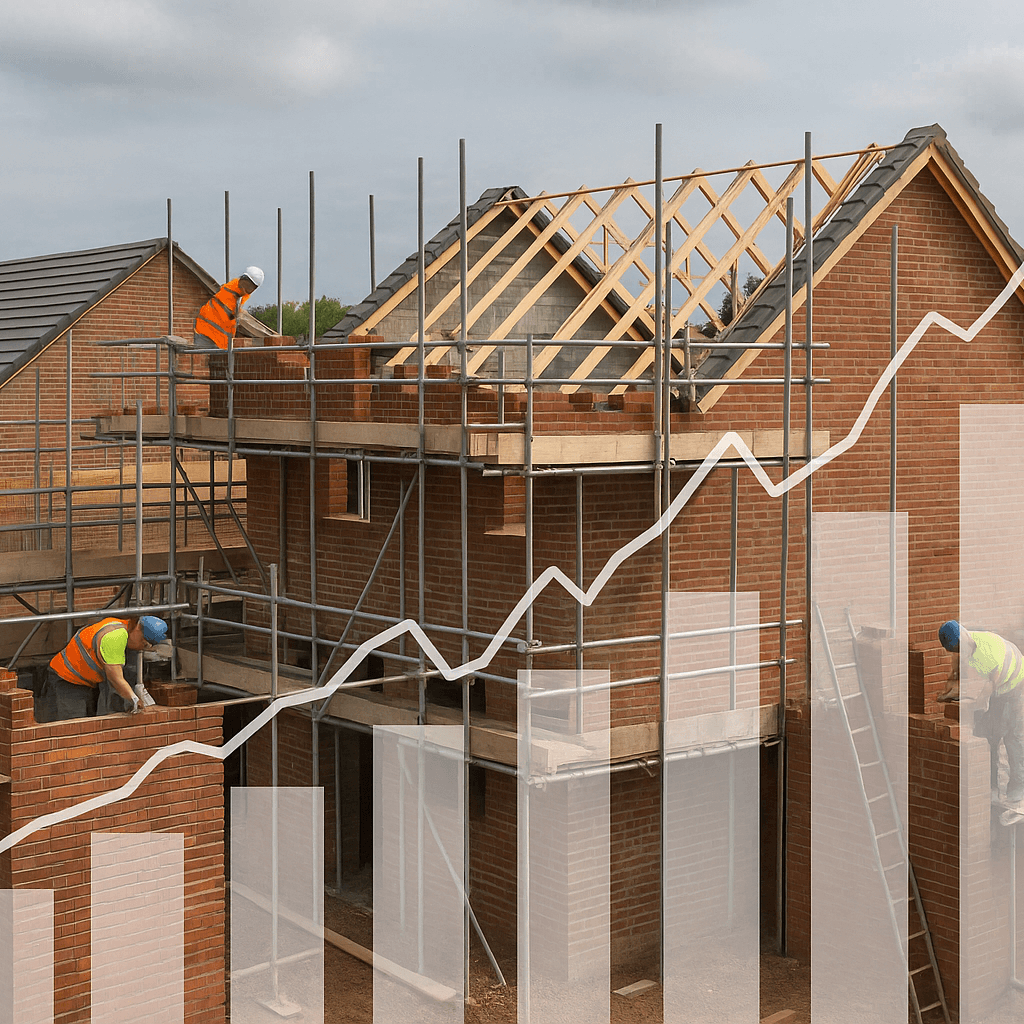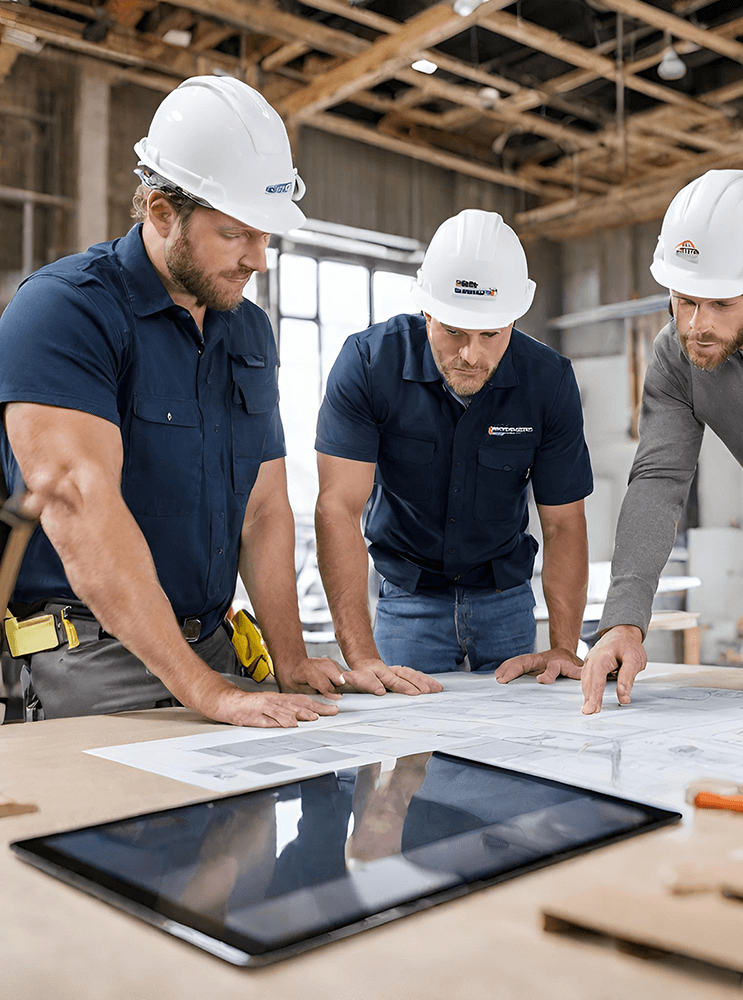Construction estimators play a crucial role in the UK construction industry by providing accurate building estimate for projects. These estimates help builders and developers plan their budgets, secure financing, and make informed decisions throughout the construction process. In this ultimate guide, we will explore the various aspects of building estimate costs, including the basics, key factors influencing costs, steps to calculate estimates, and common mistakes to avoid.
Understanding Building Estimate Costs
The Basics of Building Estimates
Building estimates involve assessing the costs associated with all aspects of a construction project. This includes materials, labor, equipment, permits, and inspection fees. Estimators rely on their expertise and industry knowledge to determine the most accurate cost projections.
When it comes to materials, estimators consider the type and quantity required for the project. They take into account factors such as the quality of the materials, availability, and market prices. Labor costs are also a significant component of building estimates. Estimators assess the number of workers needed, their skill level, and the duration of the project to calculate labor expenses.
Equipment costs are another crucial aspect of building estimates. Estimators evaluate the type of machinery and tools required for the construction project and factor in the rental or purchase costs. Permits and inspection fees are necessary expenses that estimators include in their calculations to ensure compliance with local regulations.
Importance of Accurate Cost Estimation
Accurate cost estimation is vital for builders as it helps them effectively manage their budgets. It enables builders to provide clients with reliable quotes and avoid unexpected cost overruns. Additionally, accurate estimates allow builders to optimize their resource allocation and improve project profitability.
With accurate cost estimation, builders can confidently negotiate contracts with clients and subcontractors. They can accurately assess the financial feasibility of a project and make informed decisions regarding the scope and scale of the construction. By having a clear understanding of the costs involved, builders can also identify potential cost-saving measures and alternative materials or methods that can reduce expenses without compromising quality.
Moreover, accurate cost estimation plays a crucial role in project planning and scheduling. Builders can create realistic timelines and allocate resources efficiently based on the estimated costs. This helps prevent delays and ensures that the project stays on track.
Furthermore, accurate cost estimation allows builders to maintain transparency and build trust with their clients. By providing reliable estimates, builders demonstrate their professionalism and commitment to delivering projects within budget. This helps establish long-term relationships with clients and enhances the builder’s reputation in the industry.
Key Factors Influencing Building Estimate Costs
When it comes to estimating the costs of a building project, there are several key factors that need to be considered. These factors include material costs, labor costs, equipment costs, and permit and inspection fees. By carefully analyzing and evaluating these factors, estimators can provide accurate cost estimates that help builders plan and budget effectively.
Material Costs
Materials are a significant cost component in any building project. Estimators not only consider the prices of materials but also their availability and quality. They take into account factors such as inflation, market fluctuations, and sustainable alternatives to determine the most cost-effective options. By carefully analyzing these factors, estimators can provide accurate material cost estimates that help builders make informed decisions.
For example, if there is a shortage of a particular material in the market, the estimator will take that into account and factor in any potential price increases. They will also consider sustainable alternatives that may be more cost-effective in the long run, such as using recycled materials or energy-efficient products.
Labour Costs
Labor costs encompass wages, salaries, benefits, and productivity levels of construction workers. Estimators take into account various factors when calculating labor costs. They consider labor market conditions, such as the availability of skilled workers and any labor shortages, which can impact wages. They also consider the complexity of the project and the skill requirements of the workers involved.
For instance, if a project requires highly skilled workers, such as specialized tradespeople or engineers, the labor costs will be higher compared to a project that requires less specialized labor. Estimators also factor in the productivity levels of the workers, as this can affect the overall labor costs. By carefully analyzing these factors, estimators can provide accurate labor cost estimates that help builders plan their workforce and budget accordingly.
Equipment Costs
Construction projects often require the use of specialized equipment. Estimators evaluate equipment rental or purchase costs, maintenance expenses, and depreciation to estimate equipment costs accurately. They consider the specific equipment needed for each project phase, from excavation to finishing works, to ensure comprehensive estimates.
Estimators take into account factors such as the rental rates of equipment, the frequency of equipment usage, and the expected lifespan of the equipment. They also consider any maintenance expenses that may arise during the project. By carefully analyzing these factors, estimators can provide accurate equipment cost estimates that help builders plan their equipment needs and budget effectively.
Permit and Inspection Fees
Building permits and inspections are essential regulatory requirements for any construction project. Estimators account for these fees, which vary depending on the location and nature of the project. Accurate estimation of permit and inspection costs helps builders avoid delays and comply with legal obligations.
Estimators consider factors such as the type of permits required, the complexity of the project, and the fees associated with inspections. They also take into account any potential changes in regulations or codes that may impact the permit and inspection fees. By carefully analyzing these factors, estimators can provide accurate permit and inspection cost estimates that help builders plan and budget effectively.
In conclusion, estimating building costs is a complex process that involves considering various factors. Material costs, labor costs, equipment costs, and permit and inspection fees all play a significant role in determining the overall cost of a building project. By carefully analyzing and evaluating these factors, estimators can provide accurate cost estimates that help builders plan and budget effectively.
Steps to Calculate Building Estimate Costs
Initial Project Assessment
During the initial assessment, estimators gather information about the project scope, design plans, and client requirements. They conduct site visits, consult with architects and engineers, and evaluate potential risks or challenges that may impact cost estimation. This comprehensive analysis sets the foundation for accurate cost calculations.
During the site visits, estimators meticulously inspect the project area, taking note of any existing structures or features that may need to be taken into consideration. They carefully measure the dimensions of the site, ensuring that every detail is accounted for in the cost estimation process. Additionally, estimators engage in detailed discussions with the client, seeking to understand their vision and specific needs for the project.
Once the site visits and consultations are complete, estimators collaborate with architects and engineers to gain further insights into the project. They review the design plans, seeking to understand the complexity of the structure and the materials that will be required. Estimators also take into account any special considerations, such as environmental regulations or building codes, that may impact the cost estimation.
Detailed Cost Breakdown
Estimators break down the project into individual components, such as foundations, structural elements, electrical systems, and finishes. They analyze the required materials, labor, and equipment for each component and assign costs accordingly. Estimators also consider indirect costs, such as project management fees, insurance, and contingency allowances.
When breaking down the project into components, estimators meticulously research the current market prices for materials and labor. They take into account any fluctuations in prices, ensuring that the cost estimation remains accurate and up-to-date. Estimators also consider the availability of materials and labor in the local market, as this can impact the overall cost of the project.
Furthermore, estimators carefully analyze the complexity of each component. They consider factors such as the intricacy of the design, the level of expertise required for the construction, and the time it will take to complete each task. These considerations help estimators assign the appropriate costs to each component, ensuring that the estimate reflects the true nature of the project.
Finalising the Estimate
After completing the detailed cost breakdown, estimators calculate the total cost for the project. They review their calculations, double-check data accuracy, and ensure all costs have been properly accounted for. Estimators may also consult with project stakeholders, such as builders or clients, to validate the estimate and address any questions or concerns.
During the review process, estimators pay close attention to any potential errors or omissions in the calculations. They meticulously go through each line item, ensuring that all quantities and costs are accurate. Estimators also consider any feedback or suggestions provided by project stakeholders, making necessary adjustments to the estimate if required.
Once the estimate has been finalized, estimators prepare a comprehensive report that outlines the cost breakdown and provides a detailed explanation of the calculations. This report serves as a valuable tool for project stakeholders, enabling them to make informed decisions about the project’s feasibility and budget. Estimators also maintain open lines of communication with the client, addressing any further questions or concerns that may arise.
Common Mistakes in Building Estimate Costs
Overlooking Hidden Costs
One common mistake in building estimate costs is overlooking hidden costs. These may include site preparation, unexpected design changes, or additional permit requirements. Experienced estimators are vigilant in identifying potential hidden costs and including them in the estimate to prevent budget surprises.
Inaccurate Material and Labor Costing
Estimators must stay up to date with current material and labor costs. Failing to accurately estimate these expenses can result in significant budget deviations. Estimators utilize industry databases, supplier quotes, and historical data to ensure their material and labor cost estimations are as precise as possible.
Neglecting Contingency Costs
Contingency costs are provisions set aside for unexpected events or changes during the construction process. Estimators must factor in a contingency allowance to accommodate unforeseen circumstances, such as weather delays, design modifications, or supply chain disruptions. Neglecting to include a contingency in the estimate can lead to financial strain and project setbacks.
In conclusion, building estimate costs are a vital aspect of the UK construction industry, enabling builders to plan, budget, and execute construction projects successfully. By understanding the basics, considering key factors, following a systematic calculation process, and avoiding common mistakes, estimators provide essential services that help builders deliver projects on time and within budget.
Ready to take the guesswork out of your construction project’s costs? At Cost Estimator, we specialize in providing precise and tailored building cost estimates that align with the unique demands of the UK construction industry. Our team of expert estimators employs the latest tools and methodologies to deliver detailed cost analyses, ensuring you have the insights needed to make informed decisions. From initial project assessment to final cost breakdown, we cover every angle to help you avoid common pitfalls and manage your budget effectively. Don’t leave your project’s success to chance—Upload your plans today and receive a quick quote from Cost Estimator, your trusted partner in construction cost estimating.



